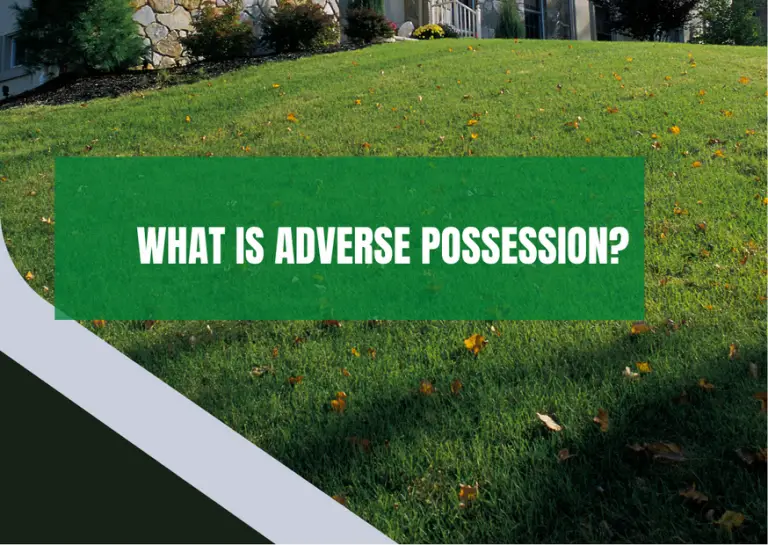What Is An Estate At Sufferance?
What Is An Estate At Sufferance?
An estate at sufferance is a type of legal estate that exists when a tenant remains in possession of a property after their lease has expired. The tenant is said to be “at sufferance” because they are essentially trespassing on the property, but the landlord has not yet taken any action to remove them.
This situation can often arise when a tenant is slow to move out after their lease has ended and the landlord has not yet taken steps to evict them.
In some cases, the landlord may be willing to allow the tenant to stay on the property for a short period of time while they look for a new place to live. However, the landlord is not required to do this and can ultimately decide to evict the tenant if they so choose.
What Is Another Term For An Estate At Sufferance?
An estate at sufferance is another term for a property that is held by a tenant after the expiration of their lease. The tenant is allowed to stay on the property until they are asked to leave by the landlord.
💥🎁 Christmas & Year-End Deals On Amazon !
Don't miss out on the best discounts and top-rated products available right now!
🛒 Shop Now and Save Big Today!*As an Amazon Associate, I earn from qualifying purchases.
This type of arrangement is often made when the tenant is behind on rent or has caused damage to the property. The tenant is said to be a “holdover tenant” and is typically subject to eviction proceedings.
What Is The Distinctive Feature Of An Estate At Sufferance?
An estate at sufferance is distinguished by its lack of a definite term. This means that the estate can be terminated at any time by the rightful owner of the property.
This type of estate is often used when the tenant is in possession of the property but has not yet been granted a lease.
Is An Estate At Sufferance A Freehold Estate?
An estate at sufferance is a freehold estate where the tenant has wrongfully remained on the property after the expiration of their lease. The tenant is allowed to stay on the property until the landlord gives them notice to leave. This type of estate is created when the tenant fails to vacate the property after the lease has expired.
The landlord has the right to evict the tenant but must go through the legal process to do so. If the landlord does not take action to evict the tenant, the tenant can continue to occupy the property.
Is An Estate At Sufferance A Leasehold?
💥🎁 Christmas & Year-End Deals On Amazon !
Don't miss out on the best discounts and top-rated products available right now!
🛒 Shop Now and Save Big Today!*As an Amazon Associate, I earn from qualifying purchases.
An estate at sufferance is a leasehold interest that exists when a tenant remains in possession of the leased premises after the expiration of the lease term without the consent of the landlord.
The tenant is said to be a holdover tenant or a tenant at sufferance. The landlord has a reversionary interest in the property and may evict the tenant at any time.
What Is An Example Of Estate At Sufferance?
Estate at sufferance is a legal term used to describe a situation where someone holds onto property without the legal right to do so. This can happen when a tenant remains in a rental property after their lease has expired or when someone occupies land that they do not own. In these cases, the rightful owner of the property can take legal action to have the trespasser removed.
An example of the estate at sufferance would be someone occupying a piece of property without the owner’s permission. In many cases, the owner may eventually allow the occupier to stay, but there is no formal agreement in place. This type of arrangement is often seen in situations where someone is squatting on a piece of land.
What Is A Sufferance Owner?
The term “tenancy at sufferance” (also known as “estate at sufferance” or “holdover tenancy”) refers to a situation in which a tenant who has legal possession of a property (such as a lease) continues to occupy it without the owner’s permission.
💥🎁 Christmas & Year-End Deals On Amazon !
Don't miss out on the best discounts and top-rated products available right now!
🛒 Shop Now and Save Big Today!*As an Amazon Associate, I earn from qualifying purchases.
The owner has the right to force the tenant to leave, but he or she is not required to do so. Typically, a property owner will allow a tenant to remain on the property for a short period after the lease ends. This can be done in order to give them time to find another place to live.
What Is A Tenant At Sufferance In Texas?
A tenant at sufferance in Texas is a person who owns any property (such as real estate, land, or manufactured home) which can be rented out. This form of tenancy is often used to describe situations where someone occupying a property without permission continues to stay there after the lease has expired.
Rather than avoiding payment of rent or becoming involved in disputes with neighbors in this situation, the tenant at sufferance should be ready to pay the landlord or owner on demand and may face an eviction notice if they don’t.
Possession at Sufferance. A person who has remained in the property after their lease has ended but who has not yet been requested to leave by the landlord is referred to as a tenant at or by sufferance.
